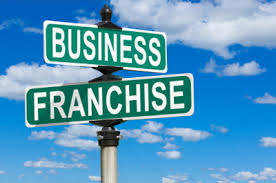
A franchise can even be a way of “buying a job” for those with retirement savings or redundancy payouts. But is it right for you? Here are some of the pros and cons that you need to consider.
Five Big Positives
– You are your own boss and you own your own business.
– You lower the risk of failure by starting in a business that’s already been proven elsewhere.
– The business comes to you as a package. Usually everything from the products to the look of the business and the operating system is included in the franchise.
– The franchise has a name people already know. You don’t have to build up recognition from a zero base.
– You have the assistance of the franchiser in sourcing products, in providing training and in your marketing.
Five Big Negatives
– You have to follow the directions of the franchiser in just about every aspect of the business so you’re not really independent.
– A percentage of everything you sell usually goes to the franchiser on top of franchise fees and a contribution to shared promotional costs.
– Your sources of supply are limited to those stipulated by the franchiser.
– If the franchiser has financial problems it can impact on your business as well.
– If there’s a disagreement between the franchiser and yourself it’s possible for your franchise agreement to be terminated (or not renewed) and put you out of business.
So What’s the Answer?
There are these and many other reasons both for and against buying a franchise but generally a franchise offers a range of advantages over starting your own business from scratch. Whether it’s really for you depends largely upon the type of person you are.
Understand that no franchise comes with a guarantee of profits. Every business is an independent operating entity that will largely succeed or fail on its own merits. Although the franchiser dictates the terms on which you trade, your own input into the business will have an influence on the bottom line.
You have to follow someone else’s way of doing business. If you can’t see yourself doing that (and many very good managers are simply too independent to accept this) then a franchise isn’t for you.
The franchise you buy should be in an area you can both relate to and enjoy. Even if the business makes money, experience shows that a franchisee needs to enjoy it to really stay with it and realize its potential.
Not all franchises are going to work, regardless of what their salespeople or literature may say. Some will fall by the wayside for one reason or another, taking their franchisees with them when they close. To avoid becoming part of a corporate wreck you need to do your own research on any franchise opportunity.
Start by talking with other franchisees. Ask them how they feel about their own business, about the franchiser and about the money they’re making. What are their thoughts on the future of the franchise? Are they getting value for money from their investment?
Examine the franchise agreement carefully. Make sure it’s not all slanted in favor of the franchiser; the best franchising relationships are reasonably equal partnerships although it’s normal for the franchiser to protect their interests from franchisees who let down the system.
Get an accurate picture of the costs of the franchise — what it will cost to set up the business and what ongoing fees, levies and so on have to be paid. How long has the franchise been going and how successful is the franchiser’s business?
Finally, do you have enough capital to enter into the franchise? There’s nothing worse than finding out you’ve exhausted your resources just as more are needed to keep things going. Franchises are never a cheap way to get into business, but they are a way with a few more certainties than going it alone.
Copyright 2004, RAN ONE Inc. All rights reserved. Reprinted with permission from www.ranone.com